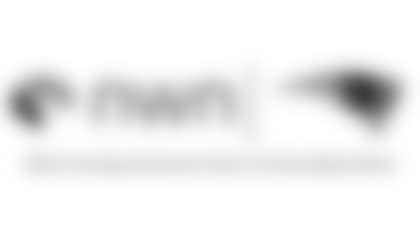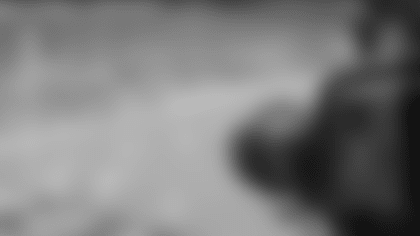ESPN reporter Mike Reiss interviews referee Gene Steratore regarding the inadvertent whistle play during the Patriots 20-13 win over the Buffalo Bills on Monday, November 23, 2015.
MR: Talking about the inadvertent whistle play – who blew the whistle and why was the whistle blown?
GS: I think as the quarterback started to get near the sideline and press the line judge, who was the official right near the quarterback, [Gary Arthur]. I think as Tom [Brady] released the football, the line judge lost track of maybe where the ball was at that point and almost by its own definition, inadvertently blew the whistle. What we do from that point onward is find out where the football was at the time the whistle was blown. We deemed it to be, in our judgement, received by the receiver, as we stated, at the 45-yard line, I believe. And then by rule, what you do with that, or once you determine in your judgement where the ball was at the time of the whistle, if it's in a possession of a player, which we deemed it to be, you take all fouls then, that would have been on that play and you enforce them from that spot of where the ball would be declared dead by the inadvertent whistle. We had a bench-area obstruction foul then, that we actually tacked on to the spot of, I believe we went from the 45 to the 40-yard line, because we tacked on the 15-yard foul from that spot. So that's what you do with the play, as it goes by rule.
MR: One of the follow-up questions was about that bench penalty.
GS: Yes.
MR: Who interfered on the sideline to lead to the penalty? How did that happen?
GS: Don't really get any defining people. We really just, for our sake, anybody that would be in any obstructing, you know, situation that would be related to the team, in any regard. But, I don't ask specifics. It's irrelevant for us really, when we enforce it.
MR: When you say obstructing, could you clarify what you mean by that?
GS: Yeah, could have stepped in front of, it can be anything that would create the official or not allow the official to officiate the play. That could be a multitude of things. Could step in front of him, he could inadvertently bump him – when an official's covering a play, he could actually bump into someone. So, there's a lot of different, you know, scenarios for that. So what we do is just basically call that an obstruction from a bench personnel.
MR: On the inadvertent whistle, when you huddling to determine when the whistle blew, whether it was in the receiver's hands or if it was still in the air… How did you determine that and what would have changed if you determined if it was before?
GS: If the ball would have been in the air, we would have gone back to the previous spot.
MR: And replay the down?
GS: Yes. Yes, exactly. But in our judgement, we thought the whistle came a little later after the ball was thrown, so we felt that the receiver had possession at the time of the whistle, so basically we went to that spot, which we determined was about the 45-yard line.
MR: Could you clarify what was seen on the last play to rule the player [in bounds]?
GS: What we had as far as the last play with Buffalo's reception was that the receiver gave himself up voluntarily in the field of play. When that occurs and we deem that the runner, which he would have been after he maintained possession after his reception, he was now a runner, had given himself up in the field of play. Then fact that he scoots out of bounds is not as important. We wound the clock. It was a judgement call by that head linesman that he felt like he gave himself up in the field of play. It's not a reviewable play. So winding the clock or stopping the clock is not something we review. So, in his judgement, he deemed that the runner gave himself up in the field of play voluntarily, which does put him down by contact in the field, so he wound [the clock].





































